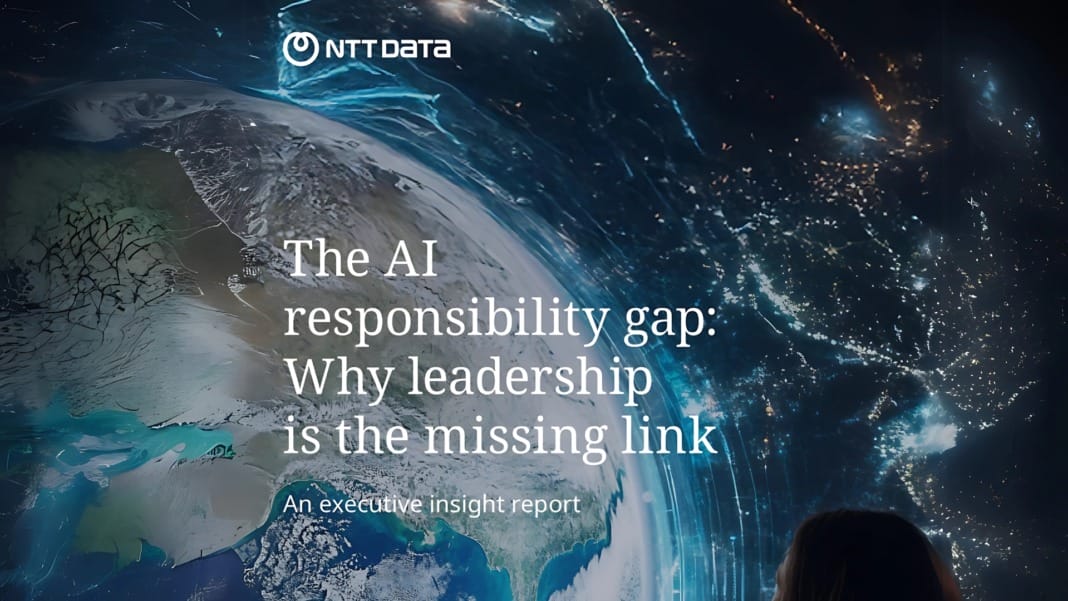A new report from NTT DATA reveals that while businesses are racing to adopt artificial intelligence (AI), a growing responsibility gap threatens progress. More than 80% of executives admit that leadership, governance, and workforce readiness are not keeping up with AI advancements, putting investment, security, and public trust at risk.
The report, The AI Responsibility Gap: Why Leadership is the Missing Link, is based on insights from over 2,300 C-suite leaders and decision-makers across 34 countries. It highlights the urgent need for leadership-driven strategies to ensure AI innovation aligns with ethical responsibility.
“The enthusiasm for AI is undeniable, but our findings show that innovation without responsibility is a risk multiplier,” said Abhijit Dubey, Chief Executive Officer, NTT DATA, Inc. “Organisations need leadership-driven AI governance strategies to close this gap—before progress stalls and trust erodes.”
Key findings: AI governance is failing to keep up
- Innovation and responsibility are at odds in the boardroom – Business leaders are divided on whether responsibility or innovation should take priority. A third of executives believe responsibility is more important than innovation, while another third prioritises innovation over safety. The remaining third views them as equally important.
- Unclear regulations slow down AI investment – More than 80% of executives say a lack of clear government regulations is discouraging AI adoption, leading to delays in investment and implementation.
- Security and ethics concerns grow – Despite ambitious AI adoption plans, 89% of executives worry about AI security risks. However, only 24% of Chief Information Security Officers (CISOs) believe their companies have a strong framework to balance AI risk with value creation.
- Workforce readiness is a major challenge – Two-thirds (67%) of executives say their employees lack the necessary skills to work effectively with AI. Additionally, 72% of companies do not have an AI policy in place to guide responsible use.
- AI’s impact on sustainability raises concerns – As businesses ramp up AI adoption, 75% of leaders report that AI ambitions conflict with corporate sustainability goals, forcing companies to rethink their approach to energy-intensive AI solutions.
Leadership must act to close the AI responsibility gap
NTT DATA warns that without strong leadership, AI innovation will outpace governance, leading to security risks, ethical concerns, and reduced trust in AI-driven solutions. To prevent this, organisations must take action in four key areas:
- Building responsible AI from the start – AI, including generative AI, should be developed with security, compliance, and transparency in mind from the outset.
- Strengthening AI governance – Companies must go beyond legal compliance and implement structured frameworks to uphold ethical and social standards.
- Upskilling the workforce – Employees need proper training to work alongside AI and fully understand its risks and opportunities.
- Global collaboration on AI policies – Governments, businesses, and industry leaders must work together to create clear and actionable AI governance frameworks.
“AI’s trajectory is clear—its impact will only grow. But without decisive leadership, we risk a future where innovation outpaces responsibility, creating security gaps, ethical blind spots, and missed opportunities,” Dubey added. “By embedding responsibility into AI’s foundation—through design, governance, workforce readiness, and ethical frameworks—we unlock AI’s full potential while ensuring it serves businesses, employees, and society at large equally.”





